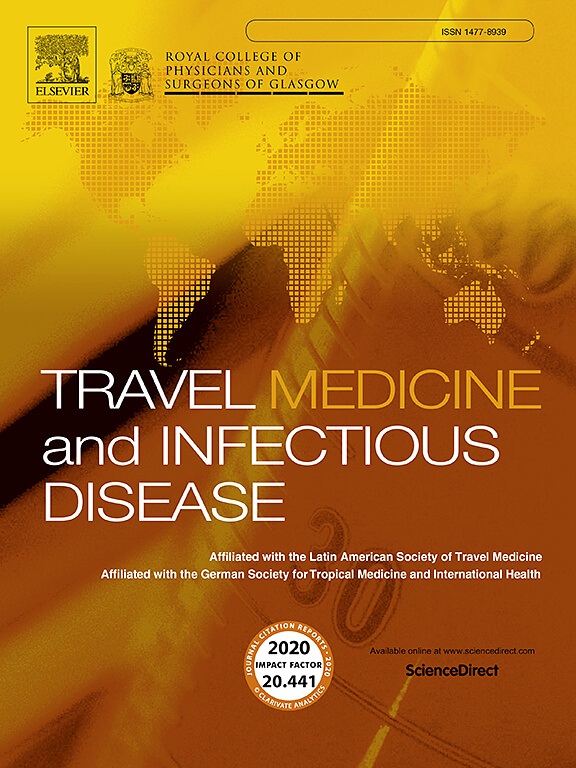Rabies post-exposure prophylaxis: A retrospective analysis of timing of initiation and antibody responses in a Belgian cohort
IF 6.3
3区 医学
Q1 INFECTIOUS DISEASES
引用次数: 0
Abstract
Background
We aimed to determine the timeliness of rabies post-exposure prophylaxis (PEP) and the proportion of individuals with an adequate antibody response post-PEP among those attending the Belgian national reference center.
Methods
Retrospective analysis of patient records who attended our center from 2018 to 2023. Delay was defined as rabies immunoglobulin (RIG) and vaccine initiation beyond 2 calendar days after exposure. Antibodies were measured by rapid fluorescent focus inhibition test (RFFIT) after PEP in high-risk exposures. A titer ≥0.5 IU/ml was considered adequate.
Results
We reviewed 317 patient records. Among individuals with inland exposure (n = 103), 85 % timely received PEP. Among travelers exposed abroad (n = 214), administration of RIG and vaccine initiation were timely in 30 % and 50 % of cases, respectively. An adequate antibody response was detected in 99.5 % (195/196) individuals.
Conclusion
Substantial PEP delays among travelers were observed. The robust antibody responses suggest that routine serological follow-up is not necessary for all patients.
狂犬病暴露后预防:对比利时队列中的启动时间和抗体反应的回顾性分析。
背景:我们旨在确定狂犬病暴露后预防(PEP)的及时性,以及在比利时国家参考中心就诊的患者中,PEP后抗体反应充分者的比例:回顾性分析2018-2023年在本中心就诊的患者记录。延迟的定义是狂犬病免疫球蛋白(RIG)和疫苗接种时间超过暴露后 2 个日历日。在高风险暴露的 PEP 后,通过快速荧光聚焦抑制试验(RFFIT)测量抗体。结果:我们审查了 317 份患者病历。在内陆接触者(人数=103)中,85%及时接受了PEP。在暴露于国外的旅行者(人数=214)中,分别有 30% 和 50% 的病例及时注射了 RIG 和疫苗。99.5%(195/196)的人检测到了足够的抗体反应:结论:在旅行者中发现了大量的 PEP 延误。强大的抗体反应表明,没有必要对所有患者进行常规血清学随访。
本文章由计算机程序翻译,如有差异,请以英文原文为准。
求助全文
约1分钟内获得全文
求助全文
来源期刊

Travel Medicine and Infectious Disease
PUBLIC, ENVIRONMENTAL & OCCUPATIONAL HEALTH-INFECTIOUS DISEASES
CiteScore
19.40
自引率
1.70%
发文量
211
审稿时长
49 days
期刊介绍:
Travel Medicine and Infectious Disease
Publication Scope:
Publishes original papers, reviews, and consensus papers
Primary theme: infectious disease in the context of travel medicine
Focus Areas:
Epidemiology and surveillance of travel-related illness
Prevention and treatment of travel-associated infections
Malaria prevention and treatment
Travellers' diarrhoea
Infections associated with mass gatherings
Migration-related infections
Vaccines and vaccine-preventable disease
Global policy/regulations for disease prevention and control
Practical clinical issues for travel and tropical medicine practitioners
Coverage:
Addresses areas of controversy and debate in travel medicine
Aims to inform guidelines and policy pertinent to travel medicine and the prevention of infectious disease
Publication Features:
Offers a fast peer-review process
Provides early online publication of accepted manuscripts
Aims to publish cutting-edge papers
 求助内容:
求助内容: 应助结果提醒方式:
应助结果提醒方式:


